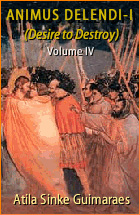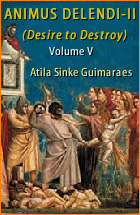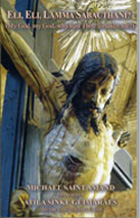Catholic Virtues
 |
 |
 |
 |
 |
 |
 |
Aromas of Heaven, Odors of Hell
& the Lukewarm
With spiritual authors, it is frequent to speak of the “sweet aroma” of Our Lord Jesus Christ, (2 Cor 2:15), that is, of the perfume of the evangelical virtues that attracts souls and makes them run on the path of sanctification, walking in the footsteps of the Divine Master.
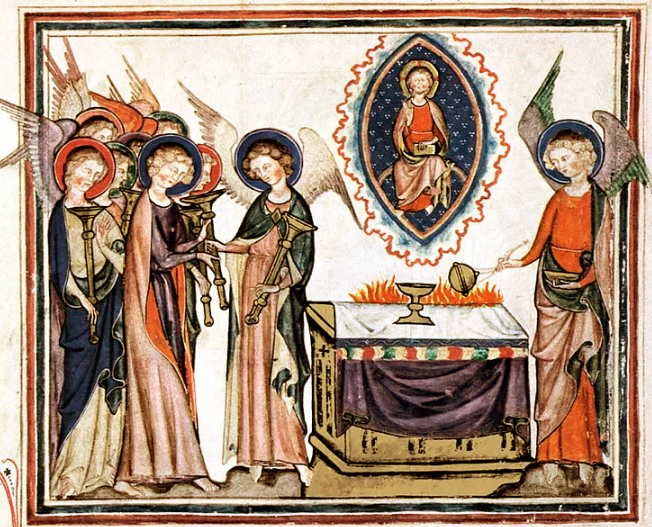 This “sweet fragrance” of Our Lord Jesus Christ expresses what is beautiful and attractive about the Holy Catholic Church, be it in her doctrine, her organization or even her life. Evidently, this is an objective beauty, which, however, can only be perceived and admired by upright minds and spirits of good will.
This “sweet fragrance” of Our Lord Jesus Christ expresses what is beautiful and attractive about the Holy Catholic Church, be it in her doctrine, her organization or even her life. Evidently, this is an objective beauty, which, however, can only be perceived and admired by upright minds and spirits of good will.
At the same time, throughout the centuries, there has been and will ever be badly formed persons who hate the truth and abhor what is good, and who implicitly find the “sweet perfume” of Our Lord Jesus Christ detestable, while they are pleased by the mephitic emanations of vice and Hell.
Between these two great categories of men, those who "run after the good odor of Our Lord Jesus Christ" and those who flee from this "odor" to breathe the putrid emanations of vice, there is, unfortunately, an immense category of men who like both the perfumes of Heaven and the emanations of Hell, and who sincerely detest both those who want to drag them up or down.
On this day of Pentecost, it is for these souls that we write a few lines.
*
Reality is more complex than it might appear by a superficial analysis of the allegory of the aromas of Heaven and the exhalations of Hell. Nor is it true that we feel only satisfaction when we breathe the sweet odors of Heaven, or only displeasure when we breathe the fumes of Hell.
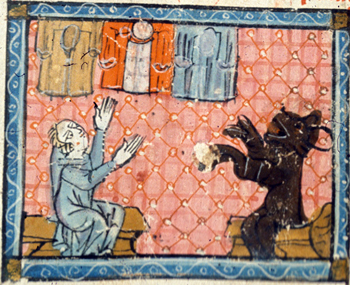 Original sin made us such that, while understanding the solidity of the truths that the Church preaches and the beauty of the virtues that she prescribes, we feel a strong inclination toward error and evil, toward which, due to our fault, we turn with a lively and strange complacency. Reciprocally, although we understand perfectly where the error and ugliness of vice and sins lead us, we feel a lively inclination towards evil in which we often delight. Thus, a true heroism is necessary at times to tread the road perfumed by the “sweet odor of Our Lord Jesus Christ” and to conquer the seductions of Hell.
Original sin made us such that, while understanding the solidity of the truths that the Church preaches and the beauty of the virtues that she prescribes, we feel a strong inclination toward error and evil, toward which, due to our fault, we turn with a lively and strange complacency. Reciprocally, although we understand perfectly where the error and ugliness of vice and sins lead us, we feel a lively inclination towards evil in which we often delight. Thus, a true heroism is necessary at times to tread the road perfumed by the “sweet odor of Our Lord Jesus Christ” and to conquer the seductions of Hell.
If many men end by following a uniform orientation, either upwards or downwards, many others, on the contrary, remain eternally in the intermediary position, in that borderline zone between good and evil. They neither burn with zeal moved by the action of grace, nor are entirely frozen in the death of sin. It is of these persons that Our Lord spoke when he said: “If you were cold or hot, I would accept you, but because you are lukewarm, I will vomit you out of my mouth.” (Apoc 3:16)
*
But there are many ways to be lukewarm. There are not only lukewarm souls who live at times in sin and then again in virtue. There are also lukewarm souls who habitually live in virtue, painfully dragging it around like a burden, soundly fixed on the terrain of minimalism, and firmly resolved not to elevate their concerns beyond the sphere of the simple fight against mortal sin. In the moral order there are many lukewarm people like this.
 In the intellectual order, there are lukewarm souls who accept Catholic doctrine, but do so without enthusiasm or warmth; certainly they love the great truths enunciated by the Church, but they do so with such lukewarmness that they detest all radical virtue, all the profound consequences, all the vibrant and uncompromising applications of our doctrine.
In the intellectual order, there are lukewarm souls who accept Catholic doctrine, but do so without enthusiasm or warmth; certainly they love the great truths enunciated by the Church, but they do so with such lukewarmness that they detest all radical virtue, all the profound consequences, all the vibrant and uncompromising applications of our doctrine.
They love the truth, but the more it resembles error, the more it compromises with falsehood, the more they will love it. On the contrary, if they come to love intransigent truths, truths that are combated in the modern world, truths hated by the spirit of the times, they do so as one who is in a bad humor, who loves them with a heavy sadness because there is no choice but to love them.
*
Undoubtedly, it is in these categories of people that the worst enemies of true Counter-revolutionaries are found. They are the ones who are much more irritated by our radicalism in proclaiming truth and goodness than they are by the radicalism of the those who adopt error and evil.
For those who deny the truth or transgress the laws of morals, they spontaneously feel from their depths a movement of charity. But for those who accuse error and combat it forthrightly, not from a lack of love for truth and goodness but from an exaggeration of these virtues, they voice an antipathy that is difficult to keep within the limits of fraternal charity... and not infrequently they are unable to be victorious in that effort. In other words, all their sympathy, all their indulgence flows naturally and spontaneously towards those who err by a deficiency of goodness and truth.
How different a position they take, however, with regard to their particular friendships! Do they become irritated with a friend who shows them an exaggerated friendship, an excessive enthusiasm, a boundless admiration? No. They would have to struggle to acknowledge that such a friendship was truly exaggerated, the enthusiasm excessive and the admiration self-serving. But how easily they would become irritated should someone slander or revile them!
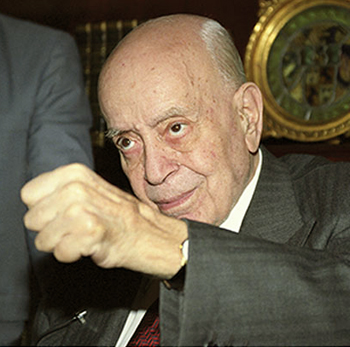 Why do they not love the Church as they love themselves, showing themselves ready to forgive crimes of excess of zeal, and difficult to forgive crimes of deficiencies and omissions?
Evidently, it is because they love themselves profoundly and the Church superficially. Quite generous with regard to themselves, “minimalist” with regard to the Church. This indulgence clearly shows the nature of their imperfections and their evil inclinations.
Why do they not love the Church as they love themselves, showing themselves ready to forgive crimes of excess of zeal, and difficult to forgive crimes of deficiencies and omissions?
Evidently, it is because they love themselves profoundly and the Church superficially. Quite generous with regard to themselves, “minimalist” with regard to the Church. This indulgence clearly shows the nature of their imperfections and their evil inclinations.
Why should we be surprised, then, that such souls would become irritated by all the truths that are painful to accept, by all the duties whose practice is difficult?
Frankly, it is an honor to be despised by these enemies because we follow the truth and accept our duties. Their irritation constitutes an attestation of our duty fulfilled. And it is much more for their sake than for our own that we should desire their reconciliation with us.
*
In this season of Pentecost, a time of fire and love when supernatural sentiments burn and inspire actions that, like those of the Apostles, were so vehement and radical that they appeared to be inebriated, let the lukewarm and the tepid ask for a little of that spark that will resurrect them to the full life of grace and truth.
If the efforts we make can contribute even a tiny bit toward this end, we will already be fully rewarded.
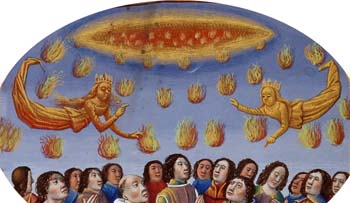


The sweet aroma of Christ represented by the incense that arises to Heaven
At the same time, throughout the centuries, there has been and will ever be badly formed persons who hate the truth and abhor what is good, and who implicitly find the “sweet perfume” of Our Lord Jesus Christ detestable, while they are pleased by the mephitic emanations of vice and Hell.
Between these two great categories of men, those who "run after the good odor of Our Lord Jesus Christ" and those who flee from this "odor" to breathe the putrid emanations of vice, there is, unfortunately, an immense category of men who like both the perfumes of Heaven and the emanations of Hell, and who sincerely detest both those who want to drag them up or down.
On this day of Pentecost, it is for these souls that we write a few lines.
Reality is more complex than it might appear by a superficial analysis of the allegory of the aromas of Heaven and the exhalations of Hell. Nor is it true that we feel only satisfaction when we breathe the sweet odors of Heaven, or only displeasure when we breathe the fumes of Hell.

The devil tempts a man who had a great love for fine clothing
If many men end by following a uniform orientation, either upwards or downwards, many others, on the contrary, remain eternally in the intermediary position, in that borderline zone between good and evil. They neither burn with zeal moved by the action of grace, nor are entirely frozen in the death of sin. It is of these persons that Our Lord spoke when he said: “If you were cold or hot, I would accept you, but because you are lukewarm, I will vomit you out of my mouth.” (Apoc 3:16)
But there are many ways to be lukewarm. There are not only lukewarm souls who live at times in sin and then again in virtue. There are also lukewarm souls who habitually live in virtue, painfully dragging it around like a burden, soundly fixed on the terrain of minimalism, and firmly resolved not to elevate their concerns beyond the sphere of the simple fight against mortal sin. In the moral order there are many lukewarm people like this.

Some men carry the duty to practice virtue like a heavy burden on their shoulders
They love the truth, but the more it resembles error, the more it compromises with falsehood, the more they will love it. On the contrary, if they come to love intransigent truths, truths that are combated in the modern world, truths hated by the spirit of the times, they do so as one who is in a bad humor, who loves them with a heavy sadness because there is no choice but to love them.
Undoubtedly, it is in these categories of people that the worst enemies of true Counter-revolutionaries are found. They are the ones who are much more irritated by our radicalism in proclaiming truth and goodness than they are by the radicalism of the those who adopt error and evil.
For those who deny the truth or transgress the laws of morals, they spontaneously feel from their depths a movement of charity. But for those who accuse error and combat it forthrightly, not from a lack of love for truth and goodness but from an exaggeration of these virtues, they voice an antipathy that is difficult to keep within the limits of fraternal charity... and not infrequently they are unable to be victorious in that effort. In other words, all their sympathy, all their indulgence flows naturally and spontaneously towards those who err by a deficiency of goodness and truth.
How different a position they take, however, with regard to their particular friendships! Do they become irritated with a friend who shows them an exaggerated friendship, an excessive enthusiasm, a boundless admiration? No. They would have to struggle to acknowledge that such a friendship was truly exaggerated, the enthusiasm excessive and the admiration self-serving. But how easily they would become irritated should someone slander or revile them!

To the end of his life Dr. Plinio never ceased to denounce error & evil; he was hated for that
Why should we be surprised, then, that such souls would become irritated by all the truths that are painful to accept, by all the duties whose practice is difficult?
Frankly, it is an honor to be despised by these enemies because we follow the truth and accept our duties. Their irritation constitutes an attestation of our duty fulfilled. And it is much more for their sake than for our own that we should desire their reconciliation with us.
In this season of Pentecost, a time of fire and love when supernatural sentiments burn and inspire actions that, like those of the Apostles, were so vehement and radical that they appeared to be inebriated, let the lukewarm and the tepid ask for a little of that spark that will resurrect them to the full life of grace and truth.
If the efforts we make can contribute even a tiny bit toward this end, we will already be fully rewarded.

The Holy Ghost sends fire from Heaven
to give the Apostles courage

Posted March 21, 2022






